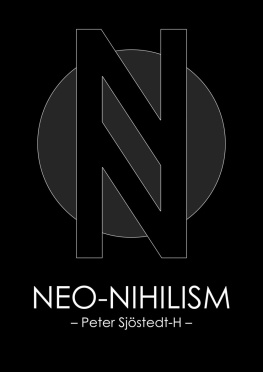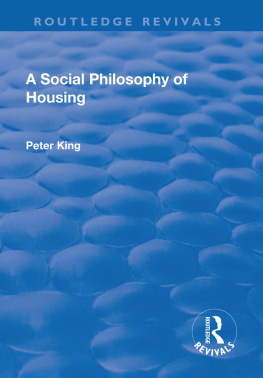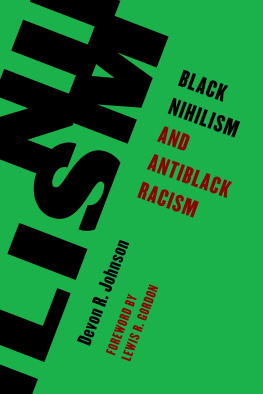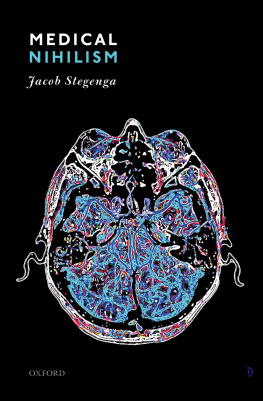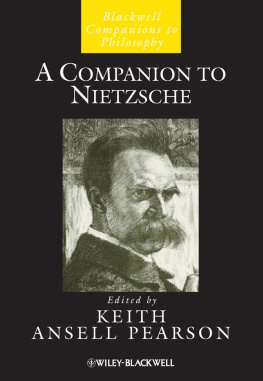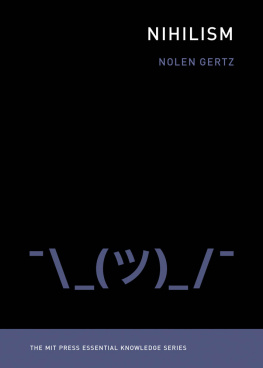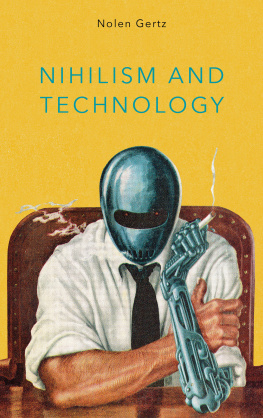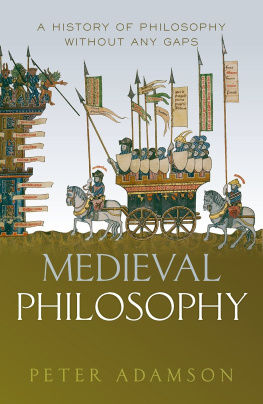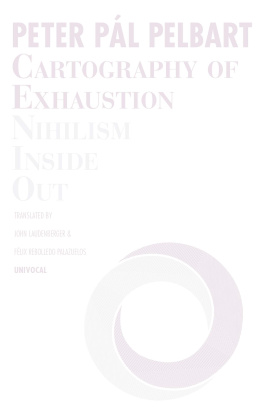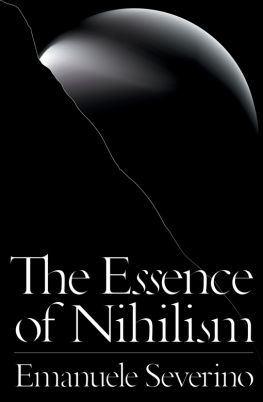Peter Sjöstedt-H - Neo-Nihilism: The Philosophy of Power
Here you can read online Peter Sjöstedt-H - Neo-Nihilism: The Philosophy of Power full text of the book (entire story) in english for free. Download pdf and epub, get meaning, cover and reviews about this ebook. year: 2015, genre: Religion. Description of the work, (preface) as well as reviews are available. Best literature library LitArk.com created for fans of good reading and offers a wide selection of genres:
Romance novel
Science fiction
Adventure
Detective
Science
History
Home and family
Prose
Art
Politics
Computer
Non-fiction
Religion
Business
Children
Humor
Choose a favorite category and find really read worthwhile books. Enjoy immersion in the world of imagination, feel the emotions of the characters or learn something new for yourself, make an fascinating discovery.
- Book:Neo-Nihilism: The Philosophy of Power
- Author:
- Genre:
- Year:2015
- Rating:4 / 5
- Favourites:Add to favourites
- Your mark:
- 80
- 1
- 2
- 3
- 4
- 5
Neo-Nihilism: The Philosophy of Power: summary, description and annotation
We offer to read an annotation, description, summary or preface (depends on what the author of the book "Neo-Nihilism: The Philosophy of Power" wrote himself). If you haven't found the necessary information about the book — write in the comments, we will try to find it.
Neo-Nihilism: The Philosophy of Power — read online for free the complete book (whole text) full work
Below is the text of the book, divided by pages. System saving the place of the last page read, allows you to conveniently read the book "Neo-Nihilism: The Philosophy of Power" online for free, without having to search again every time where you left off. Put a bookmark, and you can go to the page where you finished reading at any time.
Font size:
Interval:
Bookmark:
Neo-Nihilism
The Philosophy of Power
Peter Sjstedt-H
(INTRODUCTION MORALITY IS ILLUSION LAW IS FORCE LIFE IS WILL TO POWER)
Introduction
All cultures operate with ideology, so ubiquitous as to be invisible by those within, but blatant to those without. This is apparent when one looks upon the seemingly absurd virtues and vices of past ages and far places. What is also, however, seemingly apparent is that ones present ideology, ultimately ones morality, is somehow correct, others being incorrect. In the West, we think we have progressed morally from former, less moral times. But this is false; we have simply changed: moral progress and retrogress are illusions. In this sense, morality is more akin to fashion than to technology.
It is most often the case that setting faith in the ethics of ones culture serves ones interests.
Therefore this text will not be of service to that majority; the information herein is too potent for that character. If such a conformer sets his sight upon the light here offered he will only be capable of reaction rather than assimilation, as is purpose the same sun can be both enlightening and carcinogenic. The author asks you to set aside as much you can current ideologies held, only in order to advance yourself, to understand your surrounding influences.
Nihilism, in the sense in which it is used here, means that there exist no objective morals, no absolute good nor evil. This idea goes far and transcends modern cultural relativism, to depths and darknesses only visited hitherto by a brave few adventurers. Without the characteristic of courage you will not understand, you will not want to understand.
As prolegomena to the three chapters following, let us begin with the first: Morality as Illusion. We know in the modern world that religion is illusion, power structures presented as divine truths with omnipotent and transcendent sanctions. Morality is likewise such an illusion, presented as fact but in fact another such power structure. As the sanction of morality can no longer be God, we assume there must be a secular replacement in vain. There is no sanction. There is no God.
There is no prescriptive morality. Morality exists like religion exists, neither contains truths.
Moreover morality is not even useful in many cases, it is a hindrance. The sooner one absorbs this truth the sooner ones liberty awakens.
Secondly, we are born into an old hierarchy of laws, and taught that obedience thereto is not only to our benefit but that transgression will be met with physical force, which is also in our interest.
We do not debate law, we debate laws; as if our subservience to external authority was without question, a default position. In Europe physical force is the prerogative of the state, not of the individual. As there is no morality, there is no basis for law, and thus all law is one unit of people ruling over others by force. We humans are still animals, our intellect merely provides greater expedients to that same brute nature. It is in the interest of rulers to disguise their rule as common sense, a Leviathan that cannot be challenged much as the rule of the Church in medieval times.
Thirdly, if law be based on morality, and morality on power, then power is the bedrock of human affairs. Life is the will to power. This later concept, Wille zur Macht , blooms in the works of Friedrich Nietzsche, but buds in Schopenhauer. In the latter, all life, and all matter, is the representation of will or force in varying degrees of complexity. Only in ourselves is this will not only a representation but known in-itself as our desire. For Schopenhauer this constant striving of desire causes only suffering: need, disappointment and boredom. For Nietzsche this drive may cause pain but he does not consider pain to be inimical to life. Conversely he considers pain to be a catalyst to life: what does not kill you makes you stronger , as he famously exclaimed. This drive, this will, this force, is a drive to grow, develop, expand, advance in sum to gain power, the will to power. In most individuals this is performed at the subconscious level. To claim that power seeking is immoral is to seek power. When we accept that life is will to power, our consciousness will align itself with our subconscious, thereby providing a tonic harmony.
Nihilism is the key to liberty and power.
MORALITY IS ILLUSION
There are innumerable collections of texts devoted to the issue of morality, the majority of which are unfounded sentimentalist ramblings. Most of it enquires as to the foundation of morality; not much enquires as to whether such a foundation exists. We do not ask what the evidence for Gods existence is; we ask whether Gods existence has such evidence at all. We do not ask what the meaning of life is but whether such a meaning exists. We must extend this foundational questioning to ethics.
The great mass of error with regard to moral theory is caused by the conflation of descriptive and prescriptive morality. No one doubts that moralities, like religions, exist. We can describe those moralities in terms of behaviour, belief, biological and cultural origination etc. For example, in Viking-age Scandinavia it was believed that a cold, compassion-free heart was a virtue and that heaven, Valhalla, was only available to those who died in battle. In ancient Sparta, Lacedaemon, theft was only immoral if one was caught. Slavery was accepted, as was wife-exchange.
Infanticide of the disabled was considered a moral imperative; weakness, a vice. We can seek to explain these ethical standards by appealing to the tribalistic culture in which they operated and the biological inheritance of aggression, intelligence, etc. Such a historical, global, scientific and cultural overview of the moralities that have existed and do exist is descriptive morality and morality as such is logically legitimate.
However, the logic falters when moral imperatives oughts, shoulds, duties are derived from moral descriptions or facts. Because one acts in a certain way due to certain dispositions does not logically imply that one, or others, ought to act in that way. A person may have a disposition to aggression (a characteristic), but this does not imply that he ought to be aggressive. Likewise, a person may have a disposition to humility and compassion, but this too does not imply that he or others ought to be humble and compassionate. As the great Scot David Hume made clear, one cannot derive an ought from an is , a value from a fact, a prescription from a description. This is known as the is-ought gap, or Humes Guillotine. Many such decapitations have resulted since his death in 1776, though hidden from the eyes of the many.
As a means logically implies an end, so an ought can only logically come from an if-clause: for instance, I ought to exercise if I want to build my strength. Often the if-clause is omitted in ink or sound, but it is always implied: She ought to diet (if she wants to lose weight). The if-clause is essentially the purpose of an act (strengthening, thinning). But, as the existentialists realised, without God there is no objective purpose for a human . The purpose of a knife is to cut, therefore it ought to be sharp. A knife has a purpose as it was designed by man with the purpose in mind.
But man himself was not designed, his complexity is explained not by creation but by evolution, as was argued by Empedocles in the Iron Age. Thus, without a god, man has no purpose, there is no absolute meaning to life. But with no purpose, there is no objective, universal if-clause and consequently no objective, universal ought-clause no absolute morality. All oughts are conditioned by an if , because all means necessarily imply an end . The bones of morality lie within Gods tomb.
Despite this indubitable logic, atheist Christians, as it were, try to argue that mankind does have an objective purpose from which values, oughts , can be issued. Often one hears that we have evolved to be social and friendly animals, and thus we ought to be amicable. There are two main errors in this. Firstly is the fact that we have also evolved aggression and tribalism from which contrary oughts can be derived. Secondly, even if virtually every person had the same amicable nature, one still could not derive a value from this supposed fact, an ought from an is , a prescription from a description due to Humes Guillotine. A person, a lone wolf, who acted contrary to the generally desired will for amicability could not be said to be wrong , only unusual.
Next pageFont size:
Interval:
Bookmark:
Similar books «Neo-Nihilism: The Philosophy of Power»
Look at similar books to Neo-Nihilism: The Philosophy of Power. We have selected literature similar in name and meaning in the hope of providing readers with more options to find new, interesting, not yet read works.
Discussion, reviews of the book Neo-Nihilism: The Philosophy of Power and just readers' own opinions. Leave your comments, write what you think about the work, its meaning or the main characters. Specify what exactly you liked and what you didn't like, and why you think so.

